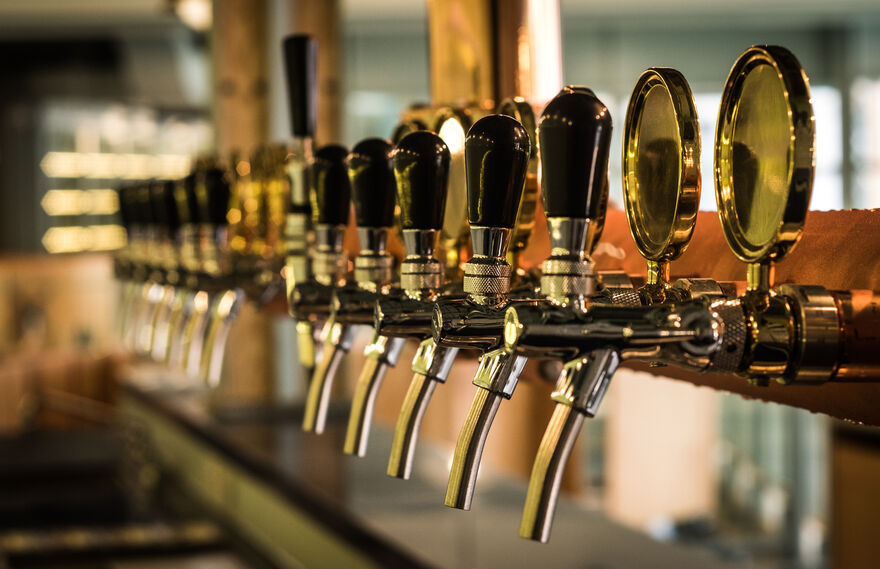Whether it’s a beer-fuelled plan after a night drinking with friends, or a carefully considered new business venture, many of us have thought about buying the local village pub. However, taking over and running a licensed premises comes with a unique set of considerations, and so we have put together our quick top 5 guide of things to think about before you make that offer.
1. Freehold or Leasehold
This is normally the first consideration for any property purchase, and licensed premises are no different. If you are purchasing a leasehold interest in a public house, you will need to bear in mind the terms of the lease as the landlord may have very specific requirements about how the pub is run. Some pub leases will also have restrictions about what alcohol can be sold and where stock is purchased from. Pubs which have these restrictions are known as “tied” pubs, those without are known as “free of tie” pubs or “free houses”. In contrast, a freehold pub is likely to have far fewer restrictions and should allow you much more freedom as to how to run the business.
2. Licences
In order to sell alcohol at a pub in England and Wales, the owner or occupier of the pub will need to apply for a premises licence from the local authority. This licence will set out restrictions on trade, such as opening hours and whether the venue can play live music. If you are purchasing a pub which is already trading, it is likely this licence will already be in place. You should check the restrictions carefully to make sure they fit with your plans for the property and make sure that the seller provides their consent to transfer the licence into your name.
As well as the premises itself being licensed, an individual at the pub will need a personal licence to authorise the sale of alcohol. This person is known as the Designated Premises Supervisor (DPS), and will usually be the owner or pub manager. If you have gambling or gaming machines at the pub, you may also need a permit from the local authority and you should make enquiries with the local authority.
3. Employees
There is legal protection for the existing employees on sale of a business under the Transfer of Undertakings (Protection of Employment) Regulations (“TUPE”). Keeping the existing staff with knowledge of running the pub may be a benefit if you are new to the business, but may be of no help if you are looking to reinvent the premises or save costs by reducing the headcount. You should take employment advice early and negotiate any arrangements for the pub’s employees as part of the deal agreed with the seller. Falling foul of TUPE and the consultation requirements under those regulations can give rise to potential claims in the Employment Tribunal – a significant cost that you may not have budgeted for.
Pub managers also often live on site in upstairs accommodation. Usually, the manager will be allowed to live at the property as a term of their employment; however, the manager may have a formal tenancy such as an AST. It will be important to establish the precise nature of this interest at an early stage (particularly if the pub manager will not be kept on) so that any tenancy rights can be brought to an end before you purchase the pub.
4. Stock, Fixtures and Fittings
It will be important to consider whether you will also be buying the equipment, fixtures and fittings at the pub, such as the beer raising equipment, till system, and pub furniture, as the pub will need this equipment to run. Other items, such as pool tables and gaming machines, may be leased from a third party, and so you should investigate how these arrangements can be transferred to you, or brought to an end. Stock will normally be transferred on the day the purchase completes and should be valued professionally to avoid arguments about the price.
5. Tax and Finances
Pub sales are often advertised as a “Transfer of a Going Concern” (TOGC) to avoid hefty VAT bills on the purchase price, but there are specific requirements for this benefit (including that both parties are VAT registered and may involve opting to tax the pub) and these will need to be considered. In addition, this may affect ongoing VAT charges on any rent if the pub is leasehold. Finally, you may be able to claim capital allowances on the plant and equipment at the pub, although this will depend on any claims made already by the seller.
This can be a complex area, and you should speak to your accountant or tax adviser at an early stage to maximise any available capital allowances and avoid unexpected VAT bills later down the line.
Any Questions?
Whether this is your first pub purchase, or you are looking to add to your chain, we have an experienced team of property, employment and commercial lawyers who can help you with every aspect of the purchase. If you have any queries, please email a member of our commercial property team or call us on 01223 791000. If you would like to find out how we can support you with your commercial property endeavours, take a look at our Commercial Property page.
The information on this site about legal matters is provided as a general guide only. Although we try to ensure that all of the information on this site is accurate and up to date, this cannot be guaranteed. The information on this site should not be relied upon or construed as constituting legal advice and Howes Percival LLP disclaims liability in relation to its use. You should seek appropriate legal advice before taking or refraining from taking any action.

